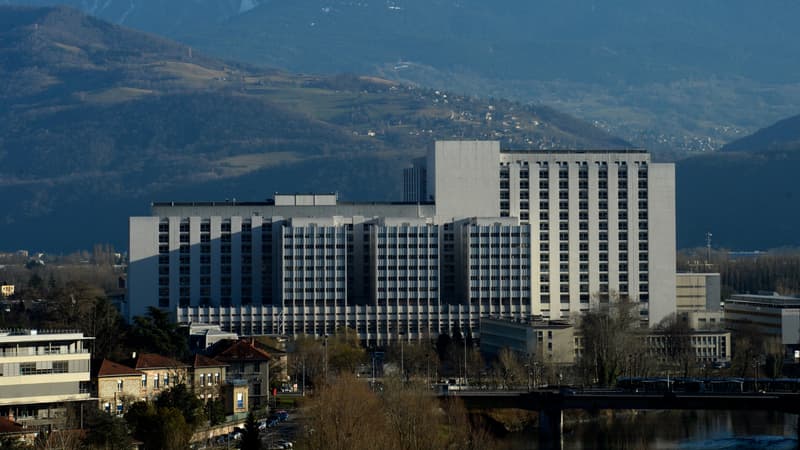“Probably a multifactorial problem.” The Grenoble Alpes Chu management reacted these press articles on Monday, April 7, on Monday, April 7, to a complaint sent by one of its agents.
An agent of the Institute of Biology and Pathology (IBP) filed a complaint against its administration on Friday, April 4 for “voluntary administration of harmful substance”, “unintentional injuries” and “exposure of others to an immediate risk of injuries,” his lawyer announced Monday. Victim of problems whose cause is still unknown, the agent says he is “very afraid” for his health. A case far from isolated within the hospital establishment.
First 2019 reports
Recognizing the “worrying character” of the situation, which is “anxiety” for its agents, Chu’s management wishes to emphasize that “there are no hundreds of discomfort but less than a dozen.”
“A relatively old issue,” according to Sébastien Vial, deputy manager of the Chu. The latter explains that, since June 2019, three series of these phenomena have been observed in the PII, in charge in 2011.
“A building of great technicalism” where “quite random phenomena combine respiratory irritation, headache, nausea, dizziness, tingling” arises, lists the deputy director general.
The fact is that air and surface samples have not highlighted chemicals or microorganisms to explain these symptoms. In total, the CHU has invested no less than 950,000 euros, according to Sébastien Vial, since the summer of 2019 to try to respond to this problem.
“There is no lasting alteration of staff health”
Among the advanced hypotheses, is that ozone. The gas has been detected in January, but according to the hospital, the new data no longer shows ozone, or an overlapping dose on the outer air.
In total, since 2019, the number of reports has been between 300 and 400, including 112 reports since last September. Professor Vincent Bonneterre, head of the Work Prevention and Health Service, confirms that the dozen patients have been listed in six years, “but many symptoms related to odors, signs of irritation.”
“We headed over par, but we find nothing significant,” continues the teacher, evoking the smells of suffering that later gave way to the smells of acid and then chlorine.
At this stage, “a lasting alteration of staff health was not found,” according to Sébastien Vial. The new experience has been diligent to try to identify the cause or causes of these disorders. Its results must be expected in May 2025.
Source: BFM TV


